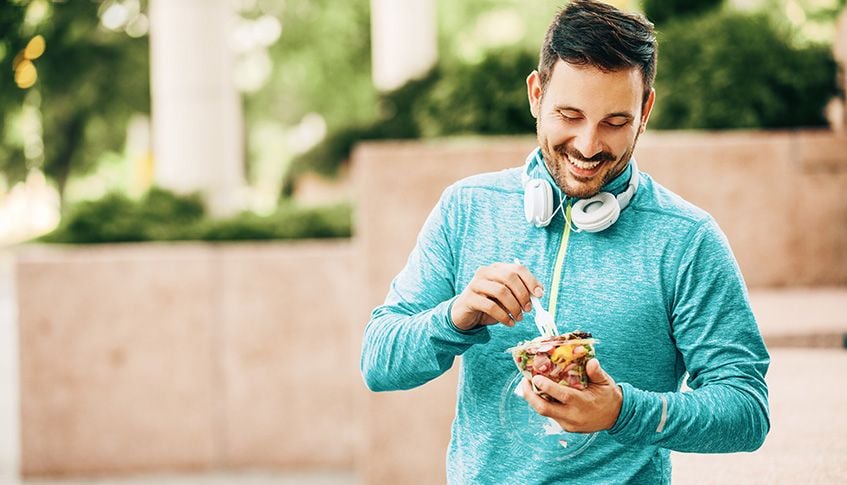Living a Healthy Life After Cancer

Many cancer survivors say they view their lives in three stages:
- Life before being diagnosed with cancer
- Life while being treated for cancer
- Life after cancer
If there is a silver lining to having cancer, it may be that cancer survivors tend to value and appreciate their health more than people who have never been seriously ill. Having experienced what it’s like to live with and be treated for a serious illness, one of survivors’ main “life after cancer” goals is often to live a healthy lifestyle to reduce the likelihood that they’ll have to live through another serious illness – cancer or otherwise.
Lifestyle Choices that Affect Your Health
Many of the things you can do to live a healthy lifestyle after cancer are the same things anyone can do to live a healthy lifestyle. These include:
- Exercising regularly. Physical activity helps with physical and mental health. Even low-impact activities, like walking, can have major positive effects on present and future health.
- Embracing a healthy diet. It really is true: You are what you eat. If your diet consists mostly of healthy foods (vegetables, fruit, whole grains, and lean proteins), you are more likely to be healthy. If you’re in the habit of eating processed, packaged, high-sugar foods modified from foods that occur naturally, you are sabotaging your health. These types of foods have been proven to contribute to obesity, diabetes, heart disease, and unhealthy cholesterol and triglyceride levels
- Avoiding all tobacco products. It has been proven time and time again that smoking and chewing tobacco are harmful to your health. Tobacco has no place in a healthy lifestyle.
- Limiting alcohol use. If you choose to drink alcohol, drink moderately (no more than one drink per day for women, no more than two drinks per day for men.)
- Limiting sun exposure. Long-term and/or excessive sun exposure can contribute to skin cancer. Try to avoid the direct sun between the hours of 10 am and 4 pm, when the sun’s rays are strongest. Using a broad-spectrum sunscreen of at least SPF 15 that shields out both UVA and UVB rays will help protect your skin.
- Being diligent about visiting your doctor for regular checkups. If you do become ill, the sooner it is detected and the sooner treatment begins, the better the prognosis usually is.
- Being diligent about taking prescription medications as directed. If your doctor prescribes you medication for high blood pressure, high cholesterol, diabetes, etc., it is important to take your medication as directed and refill your prescriptions in a timely fashion. Even if you “feel fine,” never discontinue a prescription medication without your doctor’s approval.
- Sticking to your regular cancer screening schedules. Depending on what type of cancer you had, it’s important to continue being screened for skin, colon, breast, cervical and other cancers. If you develop a recurrence or a new type of cancer, the sooner it’s identified the sooner you can begin treating it.
Embracing Healthy Habits is Especially Important for Cancer Survivors
Everyone can benefit from adopting the advice above. For cancer survivors, it’s especially critical to strive to live a healthy life. According to the American Cancer Society, survivors of many cancers, such as breast cancer and skin cancer, have a heightened risk of developing a second cancer or having a cancer recurrence.
Many survivors discover that in order to lead a healthy lifestyle after cancer, they need to change some of their thought processes and create new healthy routines. Your pre-cancer life may have involved unhealthy habits, such as drinking three or four glasses of wine a night, eating fast food several times a week, working to maintain your tan, avoiding exercise at all costs, etc. As a survivor, you’ve entered into a new stage of life that can (and should) be the beginning of a new, healthier you.
Why not recruit your family to join you in your pursuit of a healthy lifestyle? Their health will benefit and you’ll be more likely to make healthy choices when others around you are, too. Another way to stay motivated is to volunteer to help cancer patients or join a cancer survivor’s support group. Share with them about your efforts to stay healthy. You’ll be modeling healthy habits they’ll hopefully emulate, and they’ll help keep you accountable!

